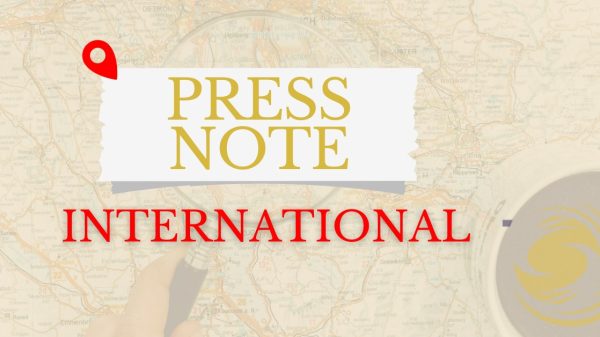The Battles Ahead for Donald Trump

- Update Time : Saturday, November 9, 2024

Swadesh Roy
Donald Trump is undoubtedly one of the most notable victors in U.S. electoral history. Yet, despite his impressive victories, he has been somewhat unlucky in the sense that he won both times against relatively weak opponents, never fully revealing his actual popularity on the world stage.
In his initial win, Trump faced former First Lady and Secretary of State Hillary Clinton. After her loss, then-President Barack Obama mused that he might have won if he had been able to run instead. Some media analysts even speculated that Michelle Obama could have defeated Trump if she had been the candidate, arguing that Americans value a “clean” image in their leaders. Hillary’s silence during the Monica Lewinsky scandal and the perceived opacity of the Clinton Foundation had already damaged her credibility. Her foreign policy, viewed by some as excessively pro-war, added to her image as a weak candidate despite her elite background.

In contrast, from the beginning, Kamala Harris was seen as an “underdog” by social media, non-partisan outlets, and the business community. She was not elected by popular support within the Democratic Party but rather emerged as a last-minute choice, leaving her political fate to chance. Meanwhile, Trump maintained his position as the Republican frontrunner, running consistent campaigns for four years. His 2020 defeat was viewed with skepticism by many Americans, fueled by numerous Democratic-led lawsuits against him. Ironically, this sustained media spotlight and Democratic focus only served to elevate Trump as a central figure in American politics.
Though a businessman at heart, Trump has been successful politically, embodying a shift where corporate leaders adopt conservative or populist political ideologies. Populism, in his case has a dual meaning: democratic appeal and riding a wave of popularity. His slogan, “Make America Great Again,” struck a chord with many Americans and was even regarded by some economists as a practical vision for the country.

During Trump’s first term, Nobel laureate economist Paul Krugman famously refused to acknowledge Trump as president in his New York Times column. Despite Krugman’s sharp criticisms, Trump refrained from suppressing dissent, setting him apart from authoritarian populists. Even when major outlets like CNN, CBC, The New York Times, and The Washington Post endorsed Kamala Harris, Trump thanked them in his victory speech, assuring that he bore no animosity toward them.
As Trump embarks on another potential term, he faces questions about whether he will be able to avoid criticism even while pursuing economic progress, immigration reforms, and diplomatic efforts to de-escalate conflicts in regions like Ukraine and the Middle East. Leaders like Trump, who adopt a corporate mindset, often find traditional political frameworks less effective than corporate strategies. Yet, this perspective clashes with established political theory, leading academics and civil society researchers to critique him extensively.
While Trump has faced intense scrutiny from civil society and academics, Democrats have largely escaped similar critique. For instance, during the Obama administration, destructive policies in Libya and Syria went overlooked by much of the media and academia. Books like How Democracies Die and Democracy in Peril became prominent works criticizing Trump’s leadership. Meanwhile, journalist Christina Lamb’s works, Our Bodies, Their Battlefield and Farewell Kabul, illustrate the devastating impact of destabilization on women in regions affected by U.S. foreign policy.

Trump initiated talks in Doha to withdraw U.S. troops from Afghanistan, but Joe Biden’s policies ultimately contributed to the rise of a fundamentalist regime there. Although Trump promises to end wars, ensuring America’s security may necessitate an approach that addresses extremism across borders, given the global nature of threats like 9/11.
Trump’s economic strategy, notably his high tariffs on imports from Asia, creates significant challenges for exporters in China, India, Japan, and Vietnam. Following his electoral victory, both the cryptocurrency and U.S. stock markets rose, and the dollar appreciated against other currencies like the Singaporean dollar. As a result, a complex financial battle between the U.S. dollar, gold, and Asian currencies could intensify. Trump will likely negotiate separate trade agreements with individual countries, particularly for critical imports such as software and semiconductors from nations like Vietnam, India, China, and Taiwan.

Traditional land wars are evolving, with oceans now becoming a strategic battleground for costly conflicts. This shift reflects a new kind of warfare as technology advances at an unprecedented pace. In this dynamic global landscape, technology is not merely creating another future; it is reshaping political realities. As one of the oldest elected leaders, Trump is navigating the country toward this uncharted future, leaving both hope and fear among the global community, from NATO allies to nations in South and Southeast Asia.
Trump’s journey through U.S. political history is far from over. His unique blend of corporate and political strategies has resonated with a significant portion of the American populace. Whether he can steer the country through the challenges that lie ahead remains to be seen, but his influence, both domestically and internationally, is undeniable.
Swadesh Roy is a National Award-winning journalist and Editor and Publisher of Sarakhon and The Present World.








Leave a Reply